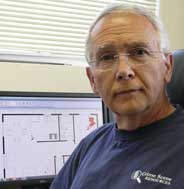Finding an entry level CSI job
Steven Staggs
Crime Scene Investigations is a fascinating and worthwhile career. Many people are interested in such a career but find it difficult to get started in crime scene investigations at their local law enforcement agency.
Once you have experience working as a CSI you are very marketable. Most agencies prefer people with experience and will pay higher salaries to attract experienced CSIs. But what if you have no experience? How to you get into crime scene investigations?
If that is you, you pretty much are stuck with finding an entry level CSI job that does not require previous experience. Entry level jobs are available — you may have to move to another state and settle for a lower pay rate — but they are available. Once you have worked a few years as a CSI you will be ready to apply for better paying jobs in more desirable locations. Entry level jobs can be found on the Employment Page of the Crime Scene Investigator Network.
But just getting an entry level CSI job can be difficult. One of the greatest challenges is the competition for the 14,000+ jobs that are in the United States. It is not unusual to have over 100 applicants for an entry level CSI job opening. So how do you become that one candidate that receives the job offer?
Make sure you have the minimum qualifications for the job. Read the minimum requirements and meet them. If you must have a Associates Degree, then go to college and get your degree. (See our college and university listings.)
Often, a candidate will have a the required degree, or even an advanced degree, but the degree does not make the candidate stand out from the other candidates. Does a degree in Criminal Justice really give you an advantage? If you do have a degree you should consider additional training in Crime Scene Investigations to make yourself even more marketable. There are several CSI certificate programs around the country. These certificate programs give you specific knowledge and training in Crime Scene Investigations.
Another thing to consider is that if you are selected for an interview you must come across as the best candidate for the job. Sometimes you are qualified but don't quite "ace" the interview so they select someone else who came across better in their interview. Check out these articles regarding preparing for interviews:
- The Interview, by Steven Staggs
- Interviewing Tips, by Thomas W. Adair
- Preparing for a Career in Criminalistics, by Thomas W. Adair
Here is a tip if you are having trouble getting a job: Apply for a "related" job, such as a Forensic Autopsy Technician, Evidence Custodian, Property Officer, Community Service Officer, etc. This can be a way to "get your foot in the door" or gain on-the-job experience that will help in getting the job you want later. Or you may be able to find a department that will allow you to volunteer to get some experience.
I like what Crime Scene Investigator "EFB" wrote in a post on our forum:
-
"I started in Dispatch to get my foot in the door. We have fully qualified people volunteering with us now just to get that much needed experience. IF you decide to go that route, treat every day like it is a job interview. They/We are watching your work ethic and dedication that you put forth. Once that job opening does come along, they already know you and know your capabilities. You will not be allowed to touch or handle evidence. You will shuffle alot of paper and do menial tasks. Do it with a smile knowing you are getting the experience that will open alot of other doors. With that said, we are a small community where everyone knows everyone else....so show them nothing but your best. Good luck!"
So apply for jobs you are qualified for, even if you have to move if you get them, and don't give up. It may take a few tries to finally become successful.
About the Author

Steven Staggs
Steve is a retired crime scene investigator, a crime scene investigations instructor, and the author of crime scene photography books and articles.
Article posted January 16, 2019, revised May 19, 2023

